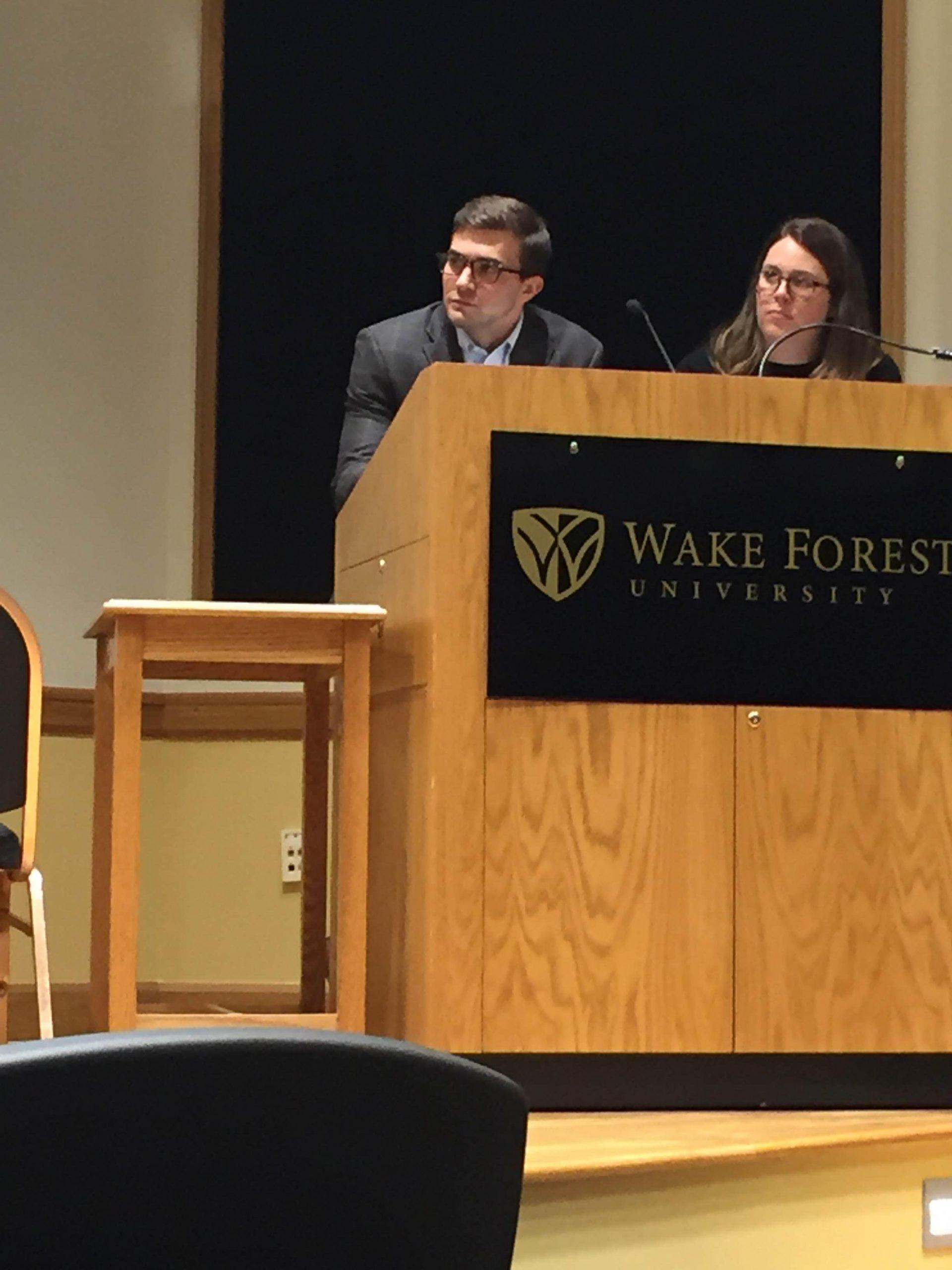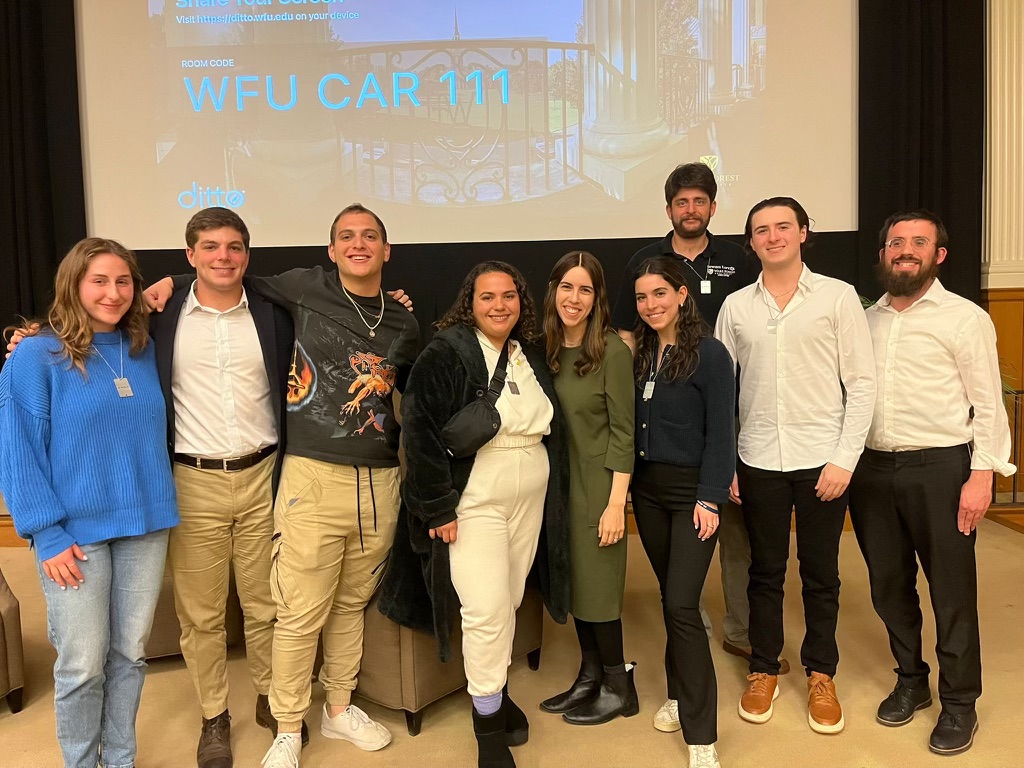The debates between candidates running for Student Government executive positions was held this past Sunday night, April 5, at 8:30 in Pugh Auditorium inside the Benson University Center.
Running nearly two hours, the debates consisted of candidates running for the offices of secretary, treasurer, speaker of the house and president. Current president Adam Hammer and Board of Trustees representative Millicent Hennessy moderated the debates.
Each debate consisted of a two minute opening statement, followed by the candidates answering questions from the moderators and then the audience. Incumbent student body secretary and sophomore Dante Lizza and freshman senator Danny Reeves kicked off the first debate for the office of secretary.
Lizza largely discussed the need for the administration to provide free transport for students to off campus counseling centers, citing that over 900 students a year seek off-campus counseling.
Reeves proposed a pre-orientation program for the executive branch of government, where everyone can come together and learn more about the political climate on campus. He explained that this would help representatives in student government feel more comfortable with each other before the start of the semester.
Next was junior Kathryn Webster, who is running unopposed for her second consecutive term as treasurer.
Webster was asked about how she would work to allocate funds to groups across campus, even as they increase in number every year.
“There is a $600,000 budget for 139 groups on campus,” Webster said. “We need to work to get more funding from campus life or financial service. It is a matter of the administration understanding that we don’t have enough funding for the organizations.”
Junior Hakeem Oufkir, who is also running unopposed as speaker of the house, explained that one of his main duties will be educating new senators on parliamentary procedure. He too supports the summer pre-orientation program so that he can educate senators before the semester starts.
Oufkir was the only executive candidate that endorsed a presidential candidate. He explained his endorsement for junior Ann Nguyen, explaining that he also was planning on running for president until he found out Nguyen was running.
“When she told me her initiatives and what she wanted to do, I found that they were so much more detail-oriented than my own, and she really has a plan for this school,” Oufkir said.
The presidential debate, at an hour long, was by far the most extensive. In addition to more questions asked by the moderators and the audience, each candidate present was able to ask each other a question. Juniors Jordan Monaghan, Nguyen and Suvra Mostafa were the debaters.
Mostafa began the debate with a five- minute opening statement, as she was unable to participate in the debate due to an Anthropology conference she was attending in Vancouver.
In her statement, Mostafa proposed a number of student reforms, including more diversity in food options, a ladies only section of the gym and more efficient shuttle routes. She also explained that she wanted to improve working conditions for Aramark employees on campus by creating a break room.
The rest of the debate, following their opening statements, consisted of Nguyen and Monaghan answering questions.
The two candidates had two very different approaches in their platforms. Nguyen proposed having a monthly town hall where the student government would explain what they have accomplished or not accomplished in the previous month. In addition, she would attempt to have administrators present who were responsible for preventing student government from reaching their goals.
“What this is trying to do is bring accountability, but also transparency, and finding a different way to put a face to our emails,” Nguyen said.
Nguyen also plans to challenge Aramark, the corporation in charge of providing facilities and food on campus. According to Nguyen, the company has too much power and influence on campus.
Monaghan proposed the idea of student groups electing ambassadors that have a seat in the senate, so that every group is represented.
He also proposed continuing Mental Health Week to raise awareness of mental illness, with the added element of peer led educational sessions, where students can ask questions about mental illnesses and talk about them.
When asked what specific actions he would take to implement these policies, Monaghan said he did not know.
“There are many students on this campus that are doing so many phenomenal things right now that address campus culture, and I don’t know what the best step is for student government.
What I want to do is work with those students, so they have an advocate on their behalf.” Audience reaction to the debates marveled at the intensity of the debates.
“First of all, these debates were really intense — more than I expected — especially the questions from the audience” said sophomore senator Suyash Keshari.
Sophomore senator and academic chair Kiya Khalil agreed with Keshari, saying that she “was surprised by a few [of the questions] that were mentioned.”
She was also impressed with the performance of the candidates, saying that “the candidates facilitated themselves very well and presented their platforms very clearly.













